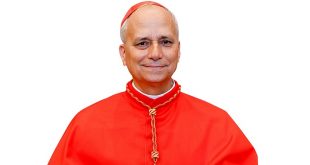
Insights from a Ugandan settlement
| SARAH VANCLUYSEN AND BERT INGELAERE | Typically, refugee camps or settlements, whether in Greece, Jordan or Libya, are seen as lawless environments. They are characterised by a lack of structure, rules and norms.
But, based on our study with South Sudanese refugees in northern Uganda, we bring a different story. We show there are a lot of rules and regulations that people abide by in the settlements. These include South Sudanese customary norms, Ugandan law and international human rights promoted by implementing agencies.
We also found that refugees invested a great amount of effort in solving disputes among themselves, and with surrounding host community members.
This isn’t exclusive to this geography. Earlier research, for instance in camps in Nepal and in Zambia already described the existence of dispute resolution by refugees alongside other actors, such as host state authorities and humanitarian actors.
When it comes to dispute resolution in Ugandan settlements, there are many different programmes and courses organised by agencies within and around the settlements. These include the introduction of community policing, peace promoters and radio talkshows.
We argue, however, that more attention is needed to also support existing structures within refugee communities: to mediate disputes in ways more familiar to them. Though the added value of resolution efforts by customary authorities is acknowledged, they’re not officially recognised by humanitarian partners. Investing in and supporting mediation techniques by formal and informal leaders could prove highly valuable.
Patchwork regulation
More than 800 000 South Sudanese refugees have remained on Ugandan soil after fleeing the violence that erupted in their newly independent nation at the end of 2013.
In Adjumani district, for example, the population has doubled over the past seven years since refugees arrived. This puts heavy pressure on the meagre resources and facilities, a situation that is rife with potential conflict and tension.
Overall, life in the settlement is regulated by a patchwork of local practices and norms, Ugandan law and international ‘best practices’ introduced by the implementing agencies.
We conducted more than 100 interviews with South Sudanese refugee leaders, chiefs, elders, host community members, NGO representatives and Ugandan authorities. The interviews took place in the Adjumani district, northern Uganda, specifically the Boroli and Alere settlements. We wanted to examine which disputes occur within and around the settlements and which actors intervene to mediate and solve them.
From these discussions, we came to the conclusion that the settlements were far from lawless places.
When a dispute occurred, we found that a variety of different actors get involved. These included individuals from within the refugee community, from the greater society, Ugandan authorities, implementing agencies – such as Lutheran World Federation and Danish Refugee Council – and refugee leaders.
Refugee leaders, either elected representatives or chiefs and elders of particular communities, played an important role. Depending on the nature of the case, it was handled individually, or settled in local courts created for the purpose.
We found that mediation efforts covered a wide range of disputes. These included marital disagreements, defusing communal tensions and dissatisfaction towards official authorities.
Take the case of Elizabeth, a South Sudanese refugee living in Alere refugee settlement, northern Uganda. One day she found that the crops she had planted to feed her family had been destroyed by cattle. Devastated, she went to report the matter to the chief. After she’d explained her story, the chief started an investigation along with other respected elders of the community. Soon, the owner of the cattle was found and Elizabeth was compensated for her loss.
 The Independent Uganda: You get the Truth we Pay the Price
The Independent Uganda: You get the Truth we Pay the Price



